Friedrich Nietzsche's "The Birth of Tragedy" serves as a profound exploration of the duality inherent in art, contrasting the Apollonian and Dionysian elements within classical Greek tragedy. With a style that blends philosophical discourse with aesthetic critique, Nietzsche marshals a rich tapestry of references to ancient Greek culture, illuminating how art embodies the tension between order and chaos. This seminal work emerges from the backdrop of burgeoning 19th-century existential thought, positioning itself against the emerging nihilism of his time, thus advocating for a resurgence of the life-affirming forces found in artistic expression. Nietzsche, a German philosopher, was deeply influenced by his classical education and personal struggles with despair, which propelled him to investigate the foundational nature of existence and meaning. His early connections with Richard Wagner and exploration of Greek tragedies led him to articulate how art, especially tragedy, can serve as a compelling antidote to the void left by a disenchanted worldview. This inquiry reflects Nietzsche's desire to foster a more vibrant appreciation for the complexities of human experience. Readers are invited to engage with "The Birth of Tragedy" not merely as a theoretical text but as a call to embrace the chaotic beauty of life through art. This work is essential for anyone seeking a deeper understanding of the philosophical underpinnings of tragedy and its relevance in confronting contemporary nihilism.
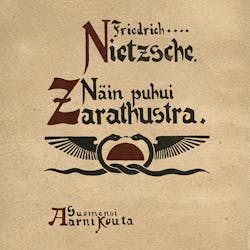
Näin puhui Zarathustra
Friedrich Nietzsche
audiobookbook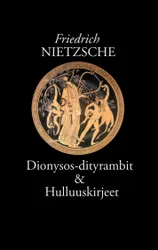
Dionysos-dityrambit
Friedrich Nietzsche
book
150 Classics You Should Read Before You Die : Romeo and Juliet, Emma, Vanity Fair, Middlemarch, Tom Sawyer, Faust, Notre Dame de Paris, Dubliners, Odyssey
William Shakespeare, John Milton, Jonathan Swift, Daniel Defoe, Henry Fielding, Laurence Sterne, Jane Austen, William Makepeace Thackeray, P. B. Shelley, Mary Shelley, John Keats, Charlotte Brontë, Emily Brontë, Anne Brontë, George Eliot, Charles Dickens, Thomas Hardy, Elizabeth von Arnim, D. H. Lawrence, Ann Ward Radcliffe, Bram Stoker, Arthur Conan Doyle, Joseph Conrad, Oscar Wilde, Lewis Carroll, Frances Hodgson Burnett, C. S. Lewis, George Weedon Grossmith, H. G. Wells, Willkie Collins, G. K. Chesterton, E. M. Forster, T. S. Eliot, James Joyce, George Bernard Shaw, W. B. Yeats, Sir Walter Scott, Robert Louis Stevenson, Kenneth Grahame, George MacDonald, J. M. Barrie, Mark Twain, Jack London, Herman Melville, Nathaniel Hawthorne, Louisa May Alcott, Willa Cather, Edith Wharton, Kate Chopin, Henry David Thoreau, Walt Whitman, Kahlil Gibran, Harriet Beecher Stowe, Frederick Douglass, James Fenimore Cooper, Henry James, Edgar Allan Poe, H. P. Lovecraft, Lewis Wallace, L. M. Montgomery, Homer, Apuleius, Marcus Aurelius, Johann Wolfgang von Goethe, Herman Hesse, Friedrich Nietzsche, Jules Verne, Marcel Proust, Victor Hugo, Gustave Flaubert, Gaston Leroux, Honoré de Balzac, Stendhal, Plato
book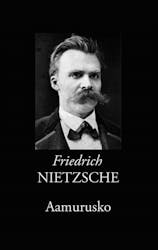
Aamurusko
Friedrich Nietzsche
book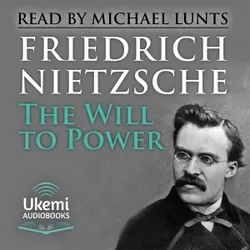
The Will to Power : An Attempted Transvaluation of All Values
Friedrich Nietzsche
audiobook
Beyond Good and Evil : Unveiling Nietzsche's Revolutionary Philosophy
Friedrich Nietzsche, Zenith Crescent Moon Press
book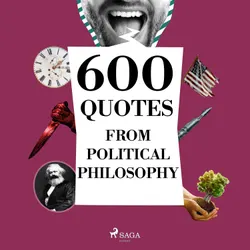
600 Quotes from Political Philosophy
Cicero, Confucius, Alexis de Tocqueville, Karl Marx, Friedrich Nietzsche, Henry David Thoreau
audiobook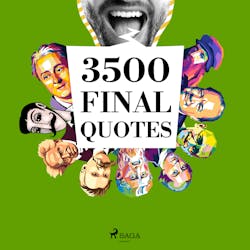
3500 Final Quotes
Marcus Aurelius, Jane Austen, Beaumarchais, Napoleon Bonaparte, Buddha, Winston Churchill, Cicero, Confucius, Nicolas de Chamfort, Charles de Gaulle, Antoine de Saint-Exupéry, Denis Diderot, Fyodor Dostoevsky, Albert Einstein, Ralph Waldo Emerson, Anne Frank, Mahatma Gandhi, Immanuel Kant, Søren Kierkegaard, Martin Luther King, Georg Christoph Lichtenberg, Abraham Lincoln, Montesquieu, Friedrich Nietzsche, Plato, Marcel Proust, Arthur Schopenhauer, William Shakespeare, Socrates, Baruch Spinoza, Henry David Thoreau, Leonardo da Vinci, Voltaire, Oscar Wilde, Lao Zi
audiobook
The Twilight of the Idols
Friedrich Nietzsche
audiobookbook
David Strauss uskontunnustajana ja kirjailijana
Friedrich Nietzsche
book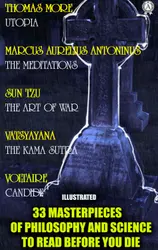
33 Masterpieces of Philosophy and Science to Read Before You Die (Illustrated) : Utopia, The Meditations, The Art of War, The Kama Sutra, Candide
Thomas More, Marcus Aurelius Antoninus, Sun Tzu, Vatsyayana, Voltaire, Edwin A. Abbott, Aristotle, Dale Carnegie, Gilbert Keith Chesterton, René Descartes, Epictetus, Sigmund Freud, Hermann Hesse, David Hume, Lao Tzu, David Herbert Lawrence, Niccolò Machiavelli, John Mill, Prentice Mulford, Friedrich Nietzsche, Plato, Bertrand Russell, H.G. Wells, Frances Bacon
book
90 Masterpieces of World Literature (Vol.II) : Novels, Poetry, Plays, Short Stories, Essays, Psychology & Philosophy
Charles Dickens, Jane Austen, Robert Louis Stevenson, Henrik Ibsen, Leo Tolstoy, Ford Madox Ford, E. M. Forster, Honoré de Balzac, Kenneth Grahame, Rabindranath Tagore, George Weedon Grossmith, F. Scott Fitzgerald, Daniel Defoe, Jules Verne, Jonathan Swift, James Fenimore Cooper, George MacDonald, J. M. Barrie, Alexandre Dumas, Homer, Dante, William Dean Howells, Kakuzo Okakura, Gustave Flaubert, Victor Hugo, Stendhal, Walter Scott, Anthony Trollope, Emile Zola, Theodor Storm, Harriet Beecher Stowe, Nathaniel Hawthorne, Henry Fielding, Jerome K. Jerome, Laurence Sterne, Thomas Hardy, Willa Cather, Edith Wharton, Kate Chopin, Sinclair Lewis, W. Somerset Maugham, Henry James, Ivan Turgenev, Nikolai Gogol, Virginia Woolf, Pedro Calderon de la Barca, Johann Wolfgang von Goethe, Friedrich Nietzsche, Benjamin Franklin, Bankim Chandra Chatterjee, Kalidasa, Válmíki, Edgar Allan Poe, Wilkie Collins, Ann Ward Radcliffe, Bram Stoker, Gaston Leroux, H. G. Wells, Joseph Conrad, Lewis Wallace, Washington Irving, Machiavelli, Fyodor Dostoyevsky, Confucius, Laozi, John Milton, P. B. Shelley, W. B. Yeats, Charlotte Perkins Gilman, D.H. Lawrence, George Bernard Shaw, Elizabeth von Arnim, Cao Xueqin, G. K. Chesterton, John Buchan, Edgar Wallace, Nikolai Leskov, Kurt Vonnegut, William Walker Atkinson, Émile Coué
book
